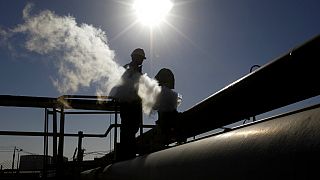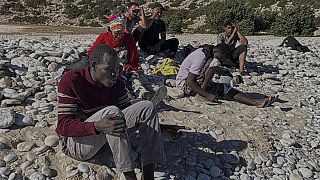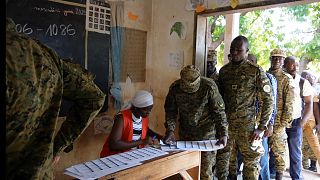Libya
Protests over social demands have continued in southern Libya, and led to the closure of two oil fields in the Ubari region.
Libya's Sharara oilfield, which produces up to 300,000 barrels per day was first shut down on Wednesday while the el-Feel field was shut thursday according to engineers.
Building a hospital in Oubari, employing young people specialized in the oil sector, setting up a dedicated refinery in Fezzan to alleviate the chronic shortages of gas and petrol, are amongst the demands of the protesting residents.
"This is the only card we have to put pressure on Tripoli to grant us our rights," says Abou Bakr Abou Setta, president of the Fezzan rally.
The government in Tripoli has called for a "return to reason" and for oil production not to be involved in such problems.
Some analysts believe the protest illustrates the political divisions between the two parallel authorities vying for power in the country.
In Tripoli sits the Abdul Hamid Dbeibeh government, which enjoys international recognition while the parallel authority administers eastern Libya from Sirte, backed by the House in Tobruk and strongman Khalifa Haftar.
The oil and gas sector is a major source of Libya's revenue. In November 2023, the state-owned National Oil Corporation (NOC) said the country's daily oil production had reached 1.24 million barrels.
"Crude oil production reached 1,240,000 barrels per day, and condensate production reached 50,000 barrels per day during the past 24 hours," the firm said in a statement.












Go to video
Greece cracks down on irregular migration, says it’s "not an open corridor to Europe"
Go to video
Togo protest crackdown raises fears of worsening political crisis
02:21
Ivorian diaspora in Paris demands free and inclusive elections ahead of October vote
02:16
Kenya's William Ruto faces growing discontent over economy and police brutality
01:02
Togo: Amnesty International calls for end to use of force against protesters
00:48
Death toll in Kenyan anti-government protests rises to 16, says rights group